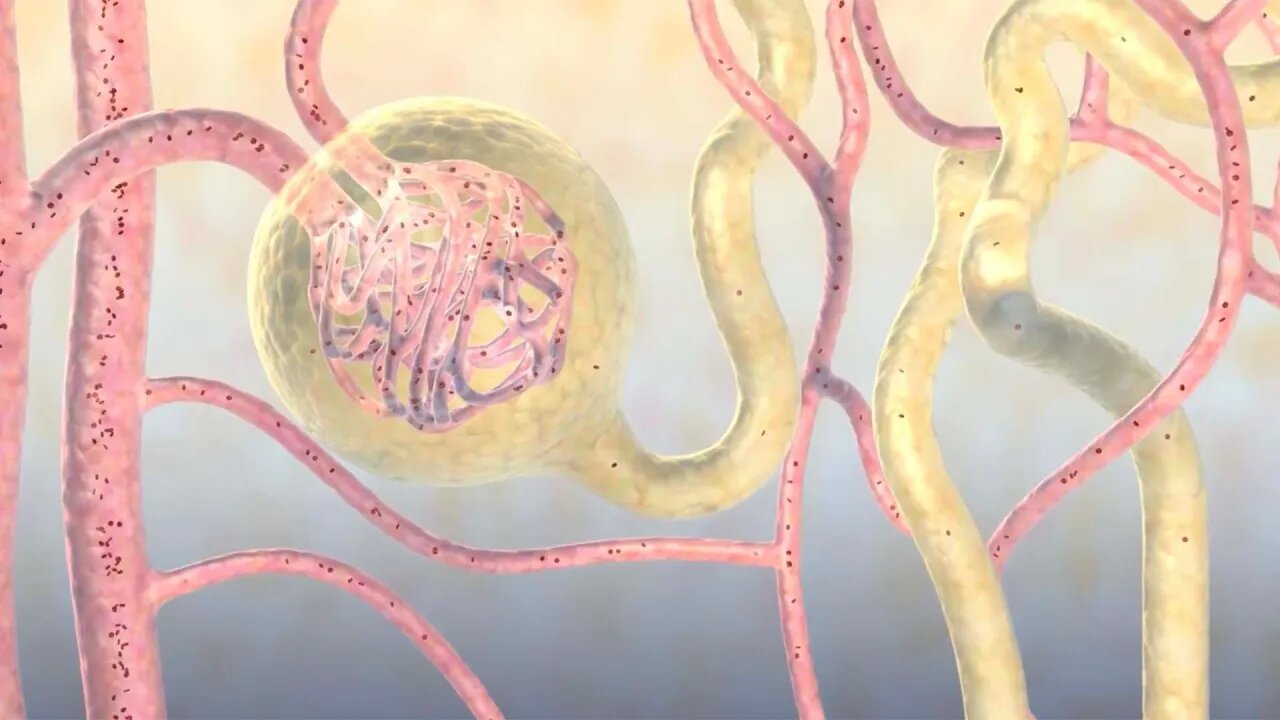Premium Only Content

How Your Body Gets Rid of Medications
MEDICAL ANIMATION TRANSCRIPT: The body filters drugs from the bloodstream and eliminates them in a multi-step process called medication excretion. The kidneys are the major route for drug elimination. Most drugs exit the body either unchanged or as drug metabolites in urine. Generally, health professionals refer to the ability of the kidneys to filter blood as renal function. Nephrons, the functional and anatomical units of the kidney, filter blood, regulate fluid volume and pH, and control levels of electrolytes in the body. Each nephron contains a renal corpuscle and renal tubule. The renal corpuscle includes the Bowman capsule and glomerulus. And the renal tubule is composed of the proximal tubule, loop of Henle, distal tubule, and collecting duct. Each component plays a role in renal drug excretion, a four-step process that allows the kidneys to filter and eliminate drugs from the body. These steps are: glomerular filtration, passive tubular reabsorption, active tubular secretion, and excretion. Blood flows into the glomerulus via a blood vessel larger in diameter than the vessel draining blood from the glomerulus. This difference in diameter creates the high blood pressure necessary to filter wastes from the blood. The glomerulus functions as a molecular sieve. Waste materials in water pass through the sieve, while most normal proteins and cells are kept in the bloodstream. Glomerular filtration removes low-molecular-weight drugs from the bloodstream. The process of passive reabsorption of water, solutes, and ions begins in the proximal tubule, continues in the Henle loop, and ends in the distal and collecting ducts. Water-soluble drugs stay in the tubule, while unionized and lipid-soluble drugs are primarily reabsorbed across renal tubules. After reabsorption, lipid-soluble drugs travel through the bloodstream to the liver where certain liver enzymes, such as the cytochrome P450 enzyme complex, metabolize them into more water-soluble forms. Here we show an example of this process through the metabolism of pentobarbital. Some drugs are not filtered from the blood via the glomerulus. Instead, special anionic and cationic pumps in the walls of the renal tubule actively transport the drugs from the blood into the tubules and collecting duct. Urine from the collecting ducts travel through the ureters where it is collected and stored in the urinary bladder until elimination from the body. Although the kidneys are the major route for drug elimination, medication excretion can also occur in lactating women through their breast milk, exhalation through the lungs, release into bile, and elimination through saliva and sweat.
#MedicationExcretion #DrugElimination #kidneys
ANM10007
-
 LIVE
LIVE
The Quartering
1 hour agoTucker Reveals FBI Coverup For Trump Assassin, Walmart CEO Quits & Tim Pool Unleashes
2,190 watching -
 LIVE
LIVE
Sean Unpaved
1 hour agoTreVeyon Henderson Scores 3 TD's As Patriots DOMINATE Jets! | UNPAVED
52 watching -
 LIVE
LIVE
Lara Logan
9 hours agoANIMALS UNDER ASSAULT: Vet Eva DeCozio On Pet Vaccines & Animal Sexual Abuse | Ep 44 | Going Rogue
233 watching -
 LIVE
LIVE
Rebel News
1 hour agoOstrich vigil update, Carney on pipeline debate, OneBC fights land grabs | Rebel Roundtable
281 watching -
 LIVE
LIVE
Dr Disrespect
2 hours ago🔴LIVE - DR DISRESPECT - BLACK OPS 7 - LAUNCH DAY CHAMPION
1,442 watching -
 1:30:43
1:30:43
Steven Crowder
3 hours agoToday, Everybody Gets the Smoke
193K116 -
 16:09
16:09
Professor Nez
1 hour agoEpstein Narrative COLLAPSES in Jasmine Crockett's FACE on LIVE TV!
11 -
 41:25
41:25
The Rubin Report
2 hours agoBari Weiss Shocks Media Establishment with Ballsy Next Move That No One Expected
21K17 -
 LIVE
LIVE
The Shannon Joy Show
2 hours agoSJ Show Nov 14 - The SJ Friday Matinee Watch Party With Commentary Featuring IDIOCRACY!
33 watching -
 1:00:52
1:00:52
Trumpet Daily
1 hour agoTrumpet Daily LIVE | Nov. 14, 2025
4.46K3